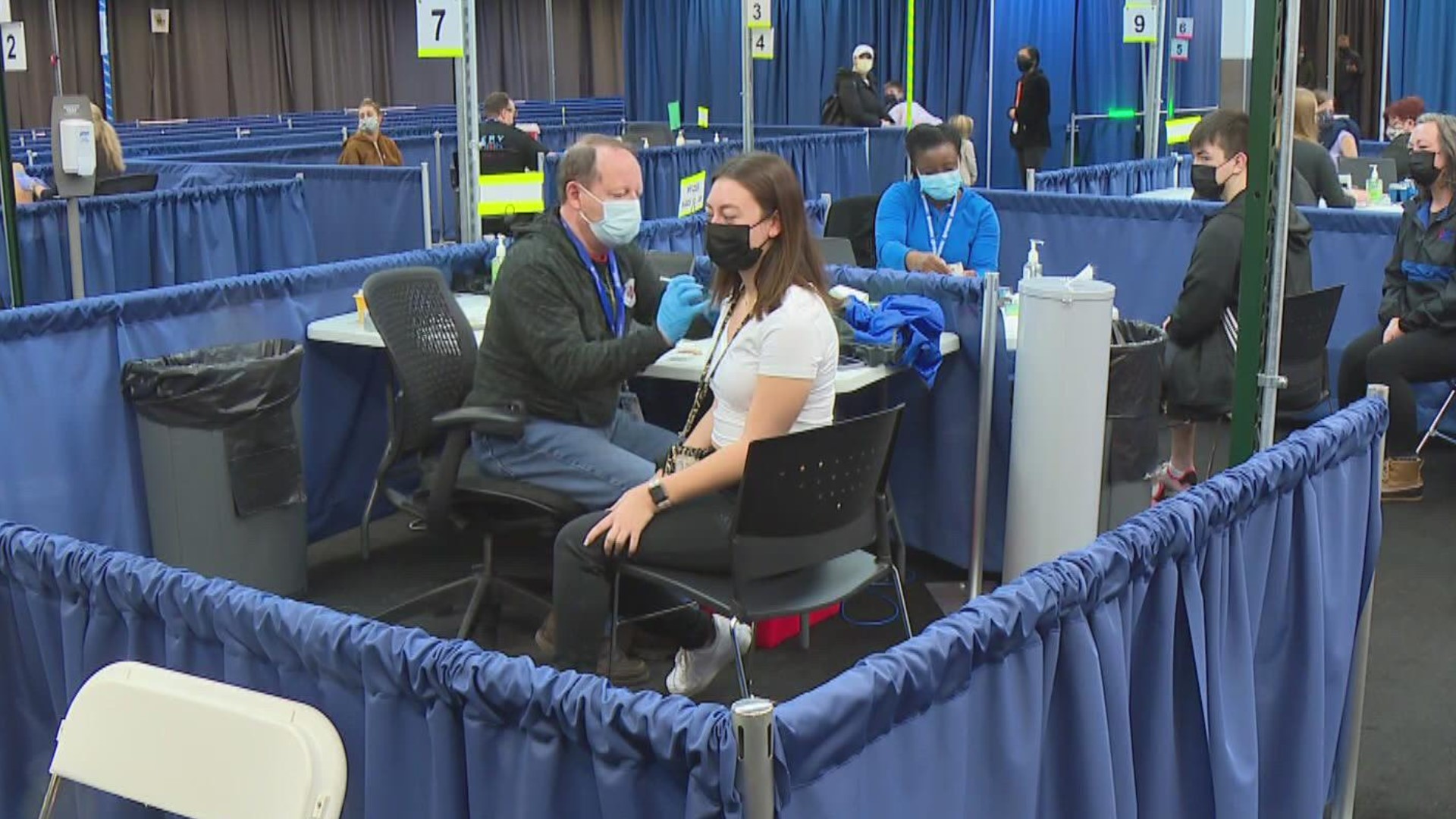INDIANAPOLIS — A study from the CDC using real-life data is the first to show that immunity against COVID-19 starts to wane four months after the third dose of an mRNA vaccine.
The research was collected during the delta and omicron surges. It was co-authored by two researchers at the Regenstrief Institute in Indianapolis.
“Even though vaccine effectiveness was lower four months later after the third dose, it’s still pretty high,” said Dr. Brian Dixon, one of the co-authors of the study and director of Public Health Informatics with the Regenstrief Institute.
A closer look at the study shows protection against emergency and urgent care visits dropped to 89% during the delta surge four months after a third dose. During omicron, it fell to 66%.
“That change is not so dramatic," Dixon said. "It doesn’t go from full protection to zero protection. It sort of goes from extremely good protection to really good protection."
The study also found that four months after vaccination, those with three doses are 40% more protected than those with two during the omicron wave.
“That really suggests that a third dose is worth it to get, especially if you are in a high-risk group,” Dixon said.
Right now, less than one-half of eligible Hoosiers have received a third dose.
The study also found people who are Hispanic or Black are half as likely to get a booster than people who are white.
The data shows among patients who are white in the emergency department, 12% had received a third dose, compared to 7% of patients who are Hispanic and 6% of patients who are Black.
The numbers were similar for those who were hospitalized with COVID-19.
“Anything we can do to help protect those minority groups is really important from a public health perspective, as well as a clinical and health perspective overall,” Dixon said.
Researchers hope studies like this will help health officials determine a timeline for booster shots going forward by giving better insight into the vaccine’s effectiveness over time.
“We don’t know the future of what policymakers might determine, but I think this study gives us a clue to what the future holds,” Dixon said. “I think we can expect that the fourth dose or additional booster might be more like nine to 12 months after vaccination, so we might be looking at a path towards an annual vaccination against COVID-19.”
What other people are reading:

